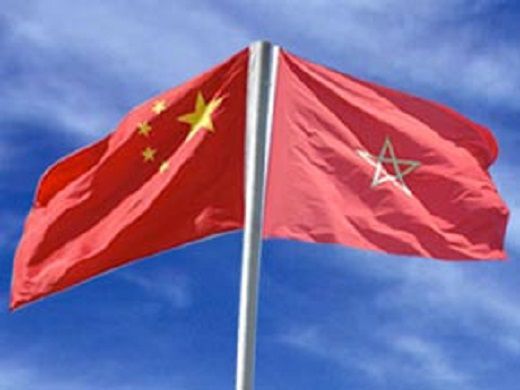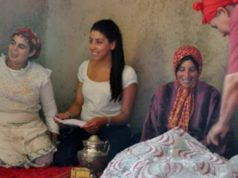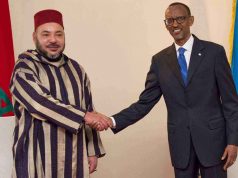
CAPE TOWN, South Africa (AMA)- The Next Einstein Forum (NEF), an initiative of the African Institute for Mathematical Sciences (AIMS) in partnership with Robert Bosch Stiftung, today announced the 2015/2016 NEF Fellows Class – twelve of Africa’s top scientists and technologists under 42 years old, working in Africa and around the world.
Central to the NEF’s vision of propelling Africa onto the global scientific stage, the NEF Fellows will present their groundbreaking research at the NEF Global Gathering to be held on 8-10 March 2016 in Dakar, Senegal, under the patronage of H.E. President Macky Sall. Reflecting Africa’s young population, 50% of participants at the NEF Global Gathering 2016 will be under 42 years old and the NEF will also place emphasis on highlighting the contributions of female scientists.
“We are excited to announce our NEF Fellows Class. We believe the young scientists selected, some of Africa’s top scientists under 42, demonstrate that there is a scientific renaissance happening on the continent and that Africa is getting back onto the global arc of innovation. These exceptional scientists and technologists are not only some of the best in their field but they are doing impactful science. Their discoveries, current and future, will solve global challenges in health, energy, climate change, agriculture, education, data and cyber security to name a few,” said Mr. Thierry Zomahoun, President and CEO of AIMS and Chairperson of the NEF.
The NEF Fellows’ work will demonstrate the impact of science and technology on development while changing perceptions about Africa’s scientific prowess. The 2015/2016 NEF Fellows include:
* Noble Banadda (Uganda): Published on the mapping of the bioresource potential of Uganda and the role of energy recovery in meeting energy demands and creating jobs, especially for the youth.
* Joseph Ben Geloun (Senegal): Awarded the Young Scientist Prize in Mathematical Physics 2015-2017 by the International Union of Pure and Applied Physics (Switzerland).
* Mouhamed Moustapha Fall (Senegal): Developed an application using mathematical modeling to calculate how much Senegalese fisherman can catch today without devastating the fish stocks of tomorrow.
* Evelyn Gitau (Kenya): Working on a diagnostic tool that uses a molecular approach to quickly and accurately identify children with severe malnutrition who are likely to die of preventable infections.
* Assane Gueye (Senegal): Working on a science-based approach to IT solutions that are good enough, cheap enough, and well suited to issues faced by people in the developing world.
* Mohlopheni Jackson Marakalala (South Africa): Working on the development of therapeutic and diagnostic tools to fight tuberculosis.
* Wilfred Ndifon (Cameroon): Solved a 70 year old immunological puzzle that changes how we understand compromised immune systems.
* Hallowed Olaoluwa (Nigeria): Youngest PhD holder in Mathematics in Africa at 21 and first and only student to do concurrent mathematics and physics degrees at bachelors and masters level in the Central African Republic.
* Tolu Oni (Nigeria): Working on the co-existence and interaction between chronic infectious and non-infectious diseases, and the impact of the physical and socioeconomic environment on the health profile of populations living in unplanned urban settings.
* Axel Ngonga (Cameroon): Working on techniques that support the development of intuitive information systems for bio-medicine, agriculture and education that can provide contextually relevant information at low cost, fostering an equal-opportunity data landscape for Africa.
* Alta Schutte (South Africa): Made numerous scientific discoveries explaining the significantly increased risk of Africans to develop heart disease.
* Komminist Weldemariam (Ethiopia): Working on the creation of cognitive, mobile, and analytics technologies to increase student performance.
NEF Fellows were selected via a rigorous process that looks at academic and scientific qualifications measured by a PhD in STEM, social science or technology, a strong publication record, patents, awards, and independently raised funds for research. Fellows also have to demonstrate the relevance and impact of their research/innovations to society as well as a passion for raising Africa’s scientific profile.
“The NEF comes at a critical time; Africa can no longer take a back seat on leveraging science to advance our countries. As the NEF’s first Fellows Class, we hope to show by our own example, the potential of young Africans in scientific and technological fields. It is time for Africa’s scientific community to come out of the shadows. It is time to change the narrative because Africans are working to solve Africa’s challenges. We need support, yes, but the capacity is there,” said Dr. Tolu Oni, NEF Fellow and public health specialist.
In keeping with the NEF commitment to having at least 40% women in the NEF Fellows Class, the NEF has launched a female-only process to recruit three more brilliant female scientists and technologists to round off the Class of 15 NEF Fellows. Applications close on 31 December 2015.
African Media Agency.





